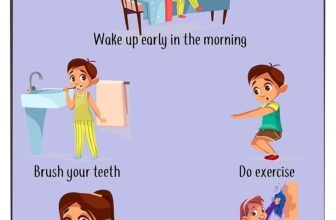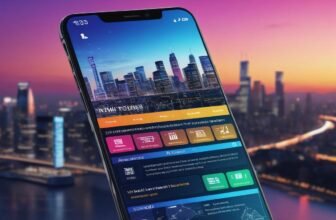How to Use AI for Self-Help

How to Use AI for Self-Help
A Journey into Personal Growth and Well-being
A New Era of Self-Help
In today’s fast-paced world, personal development and self-help have become essential for maintaining mental well-being and achieving success. But what if you could have a 24/7 personal coach, a mentor that adapts to your needs, and an assistant that helps you navigate life’s challenges? Enter Artificial Intelligence (AI), a revolutionary tool transforming the way we approach self-improvement.
AI-driven tools have evolved from simple chatbots to sophisticated systems capable of offering personalized advice, tracking habits, guiding meditation, and even providing therapy-like interactions. In this article, we will explore how AI can enhance your self-help journey, provide practical ways to integrate it into your routine, and highlight potential challenges to be aware of.
1. Understanding AI in Self-Help
AI in self-help refers to the use of artificial intelligence applications, machine learning algorithms, and natural language processing to aid personal development. These tools can analyze vast amounts of data, recognize patterns, and offer insights tailored to your specific needs.
Some of the most common AI-powered self-help applications include:
- AI Therapy Chatbots – Platforms like Woebot and Wysa use cognitive behavioral therapy (CBT) techniques to help users manage stress, anxiety, and depression.
- Personalized Habit Trackers – AI-based habit trackers, like Habitica and Fabulous, help users set and maintain personal goals.
- Meditation & Mindfulness Apps – AI-driven apps like Headspace and Calm provide guided meditation and relaxation techniques.
- AI Life Coaches – Virtual assistants like Replika offer emotional support and guidance for personal growth.
- Writing & Journaling Assistants – AI-powered journaling apps such as Reflectly help users process emotions and gain self-awareness.
With these tools, AI can help create personalized strategies for overcoming obstacles, building confidence, and improving overall well-being.
2. How AI Can Assist in Different Aspects of Self-Help
A. Mental Health Support
AI-driven therapy chatbots are becoming an essential part of self-help, especially for those who may not have access to traditional therapy. These chatbots analyze user inputs and offer responses based on cognitive behavioral therapy (CBT) principles, helping users reframe negative thoughts and develop coping mechanisms.
- Example: Wysa, an AI chatbot, engages users in conversations that mimic a therapist’s guidance, helping them work through anxiety and stress in a structured way.
- Benefit: AI provides an anonymous, judgment-free space for people to express their emotions and receive support at any time.
B. Building Positive Habits
One of the most challenging aspects of self-improvement is forming and maintaining positive habits. AI-powered habit trackers help by offering personalized reminders, tracking progress, and even rewarding consistency.
- Example: Habitica turns habit-building into a game where users earn points and level up by completing daily goals.
- Benefit: AI-powered habit tracking makes self-improvement engaging and interactive.
C. Enhancing Productivity & Time Management
AI can help individuals stay on track with their goals by providing insights into their productivity patterns and suggesting improvements.
- Example: Tools like RescueTime and Motion analyze how you spend time online and offer recommendations for better time management.
- Benefit: AI can identify time-wasting behaviors and help users make data-driven decisions to optimize their day.
D. Meditation & Mindfulness
Meditation and mindfulness have been proven to reduce stress and improve emotional well-being. AI-powered meditation apps tailor sessions to an individual’s mood and progress.
- Example: Calm and Headspace use AI to suggest meditation practices based on user preferences and historical activity.
- Benefit: Personalized meditation sessions enhance relaxation and mental clarity.
E. AI Life Coaching & Journaling
AI-powered life coaches provide motivation, goal-setting assistance, and structured self-reflection exercises. Similarly, AI-enhanced journaling apps help users track their thoughts and emotions over time.
- Example: Replika, an AI chatbot, engages users in meaningful conversations that foster self-awareness.
- Benefit: AI-based life coaching and journaling encourage introspection and emotional resilience.
3. Practical Ways to Integrate AI into Your Self-Help Routine
A. Define Your Goals
Before integrating AI tools into your life, determine what you want to achieve. Whether it’s reducing stress, improving productivity, or developing a new habit, clarity on your objectives will help you choose the right AI application.
B. Experiment with Different AI Tools
Not all AI tools will work for everyone. Try out different options to find what resonates best with you. Many apps offer free trials, so take advantage of them before committing.
C. Use AI as a Supplement, Not a Replacement
AI can be a fantastic self-help companion, but it should not replace human interaction or professional help when needed. Balance AI-driven insights with real-life experiences.
D. Maintain Digital Well-Being
While AI can be helpful, excessive reliance on technology can lead to screen fatigue. Ensure you set boundaries and take breaks from digital interactions.
E. Track Your Progress
Most AI-powered self-help tools offer analytics and insights into your progress. Review these regularly to assess your improvement and adjust your strategies accordingly.
4. Potential Challenges & Ethical Considerations
A. Privacy & Data Security
Since AI tools collect personal data, it’s important to choose platforms that prioritize user privacy. Read privacy policies and ensure your information is secure.
B. Lack of Human Empathy
Although AI chatbots mimic human conversation, they lack genuine empathy and deep emotional understanding. Always seek professional guidance for complex mental health issues.
C. Over-Reliance on Technology
AI is a tool, not a crutch. Overdependence on digital assistants can limit real-world problem-solving skills and emotional resilience.
D. Misinformation Risks
AI systems are not perfect and may provide inaccurate or biased information. Verify AI-generated advice with credible sources.
Embrace AI as a Personal Growth Partner
AI offers incredible potential for self-help, making personal development more accessible and tailored to individual needs. From therapy chatbots to productivity assistants, AI can support mental health, build positive habits, and enhance mindfulness.
However, AI should be used wisely—as a supplement rather than a substitute for human connection and professional guidance. By integrating AI mindfully into your self-help journey, you can harness its power to become the best version of yourself.
Recommended AI Self-Help Tools:
- Mental Health Chatbots: Woebot, Wysa
- Habit Trackers: Habitica, Fabulous
- Meditation Apps: Headspace, Calm
- AI Life Coaches: Replika
- Productivity Tools: RescueTime, Motion
In this digital age, AI can be your supportive companion in personal growth. The key is to use it wisely, ensuring it aligns with your goals and enhances your overall well-being. image/redresscompliance





